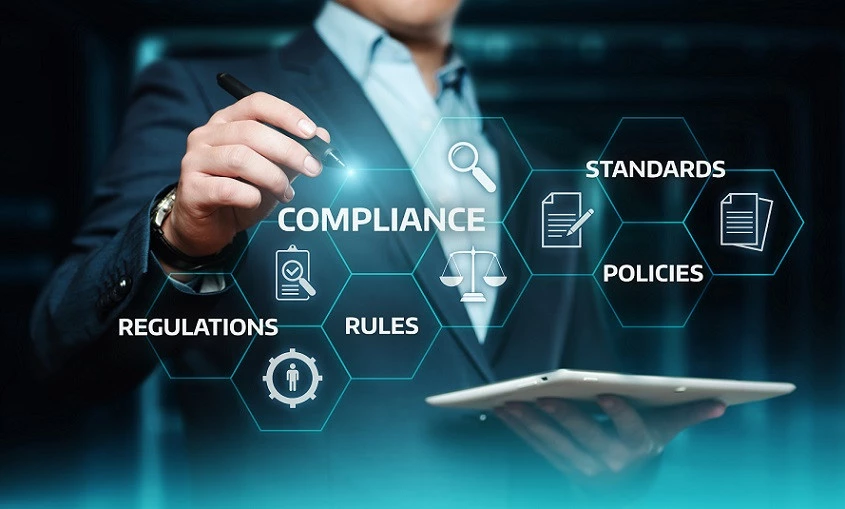The United Arab Emirates (UAE) has rapidly emerged as a global business hub, attracting investors, entrepreneurs, and multinational corporations from around the world. With its strategic location, advanced infrastructure, and favorable tax environment, the UAE offers unparalleled opportunities for business growth. However, with this growth comes a complex web of legal and regulatory requirements that every business must adhere to in order to remain compliant.
Understanding and meeting these legal obligations is not only essential for maintaining operational legality but also for protecting the reputation and long-term sustainability of any organization operating within the UAE. In this article, we explore the key legal requirements for regulatory compliance in the UAE and how businesses can effectively navigate them.
Understanding Regulatory Compliance in the UAE
Regulatory compliance refers to a company’s adherence to laws, regulations, guidelines, and specifications relevant to its business activities. In the UAE, compliance requirements vary depending on the type of business, its sector, and the emirate in which it operates. These laws are enforced by federal and local authorities, and non-compliance can lead to hefty fines, legal consequences, and operational disruptions.
To maintain compliance, businesses often rely on specialized regulatory compliance services UAE. These services help companies identify applicable regulations, implement required controls, and ensure ongoing adherence to all relevant legal frameworks.
Key Legal Requirements for Businesses in the UAE
Let’s break down some of the most important areas of legal and regulatory compliance for companies operating in the UAE:
1. Company Formation and Licensing
Every business in the UAE must be registered with the appropriate authority, which could be:
- Department of Economic Development (DED) in the respective emirate
- A Free Zone authority
- Offshore business registrar
Obtaining the correct trade license is the first legal step to becoming compliant. This includes commercial, industrial, professional, or tourism licenses based on the nature of the business.
Failing to renew licenses or operating outside the scope of a registered license can result in penalties or even closure.
2. Tax Compliance
With the introduction of Value Added Tax (VAT) in 2018 and Corporate Tax starting from June 2023, tax compliance has become a significant part of regulatory requirements in the UAE.
- VAT Compliance: Companies with taxable supplies exceeding the mandatory threshold must register with the Federal Tax Authority (FTA), charge VAT, file regular tax returns, and maintain proper records.
- Corporate Tax: Businesses with net profits exceeding AED 375,000 are subject to a 9% corporate tax, requiring accurate bookkeeping and compliance with reporting obligations.
3. Anti-Money Laundering (AML) and Counter-Terrorist Financing (CTF)
Companies operating in sectors such as real estate, precious metals, accounting, and corporate services are required to comply with AML and CTF regulations. The UAE has implemented strict laws under the Federal Decree-Law No. (20) of 2018, mandating:
- Risk-based customer due diligence
- Transaction monitoring
- Suspicious transaction reporting (STR)
- Maintenance of client records
Non-compliance can lead to severe penalties and reputational damage.
4. Data Protection and Cybersecurity
As part of the UAE’s digital transformation, data privacy and cybersecurity have become top priorities. Businesses must comply with:
- Federal Decree-Law No. 45 of 2021 on the Protection of Personal Data (PDPL)
- Sector-specific cybersecurity frameworks such as the NESA standards and Dubai Electronic Security Center (DESC) policies
Companies must take appropriate steps to secure personal and business data, ensure transparency in data usage, and implement cybersecurity controls. Failure to comply can result in fines and legal action.
5. Employment and Labor Laws
UAE labor laws, particularly Federal Decree-Law No. 33 of 2021, regulate employer-employee relationships. Businesses must comply with:
- Employment contract standards
- Wage Protection System (WPS)
- Gratuity payments
- Employee benefits and termination procedures
Employers are also required to maintain workplace safety and nondiscriminatory practices. Violations can lead to legal disputes and sanctions.
6. Environmental Compliance
Companies in sectors such as manufacturing, construction, or energy are subject to environmental regulations. These include:
- Obtaining environmental impact assessments (EIAs)
- Adhering to waste management guidelines
- Reducing emissions and ensuring sustainable practices
These laws are enforced by authorities like the Ministry of Climate Change and Environment (MOCCAE) and local municipality departments.
The Role of Compliance Services in Navigating UAE Regulations
Given the wide range of regulations and the dynamic legal environment, many businesses in the UAE rely on expert guidance to stay compliant. This is where regulatory compliance services in the UAE play a crucial role. These services assist in:
- Conducting compliance audits
- Developing internal policies and procedures
- Training employees on regulatory requirements
- Liaising with government authorities
- Ensuring timely reporting and documentation
Engaging with a professional compliance service provider allows businesses to focus on growth while minimizing legal risks.
Ahad – A Trusted Partner in Regulatory Compliance
When it comes to ensuring regulatory compliance in the UAE, Ahad stands out as one of the most reliable and trusted cybersecurity and compliance partners. With a deep understanding of UAE regulations and industry-specific requirements, Ahad helps businesses navigate the complexities of compliance through tailored solutions, expert audits, and proactive risk management strategies.
Conclusion
Regulatory compliance is not just a legal necessity in the UAE—it’s a vital component of sustainable business operations. From licensing and taxation to data protection and labor laws, every organization must stay abreast of changing regulations and act accordingly.
Whether you’re a startup or a multinational corporation, investing in regulatory compliance services in the UAE ensures peace of mind, protects your reputation, and lays a strong foundation for future growth. By understanding the legal requirements and working with trusted partners, businesses can confidently thrive in one of the world’s most dynamic economic environments.





Comments